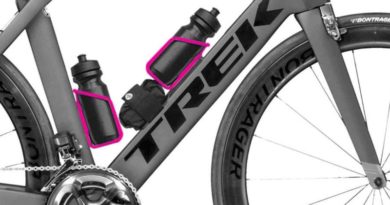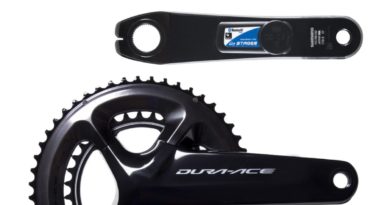Bike industry executives testify against tariff damage to U.S. bike biz
Earlier this week eight bike biz executives testified in front of the United States Trade Representative (USTR) as it concluded its final day regarding a proposed 25 percent tariff increase on $200 billion of imported goods from China.
The proposal, if legislated into action, would raise duties on more than $1 billion of bicycles, parts and accessories, including safety equipment such as helmets and lighting.
The result of an investigation the USTR, commenced in August 2017, the proposal examines whether the Chinese government has been utilising unfair practices to artificially lower prices and utilise trade secrets and technology of U.S. companies.
The proposed tariffs on $200 billion of imported goods from China follow a 25 percent increase on $50 billion worth of imports, including electric bicycles, that the USTR has already approved.
The Bicycle Product Suppliers Association (BPSA) and PeopleForBikes Coalition have been leading the fight against higher tariffs for the U.S. bicycle industry.
Bob Burns (Trek), Patrick Cunnane (PeopleForBikes and Advanced Sports Enterprises), Jennifer Harned (Bell/Giro), Arnold Kamler (Kent International), Bob Margevicius (BPSA and Specialized), Matt Moore (BPSA and Quality Bicycle Products), Patrick Seidler (Wilderness Trail Bikes) and Bill Smith (Huffy) testified to the effects these tariff increases would have on the domestic bike biz.
Over the course of the week, 358 speakers testified on behalf of many different industries affected by the tariff proposals. According to USTR, this was likely the largest hearing the agency has ever convened, highlighting the perceived damage that American businesses anticipate the tariffs will create.
Testifiers repeatedly pointed to the lack of connection between the bike biz and the underlying intellectual property concerns that prompted USTR’s investigation. “[…] the utilisation of Chinese manufacturing has not raised concerns for our industry in this space,” Margevicius said. “Our companies are not pressured into sharing trade secrets or coerced into divulging sensitive business information through our operations.”
Moore explained that because the major features of bicycles were largely perfected in the 1890s, there is almost no proprietary knowledge that can be stolen by Chinese manufacturers.
“The 97 percent of children’s bicycles made in China have no proprietary technology whatsoever involved in their design or manufacture,” he said.
The tariffs would raise the price of nearly every new bicycle sold in the United States: Nearly 94 percent of complete bicycles sold in the country are imported from China — a proportion that can’t quickly be changed because manufacturing relocation is a time-consuming and expensive process. Cunnane commented: “We don’t have — and won’t have — the domestic manufacturing base or domestic supply chain to reposition our industry.”
Close to 80 percent of the bicycle industry’s projected $250 million financial burden related to the new tariffs would come from complete bikes and could raise prices on these products by 25 to 40 percent.
Moore said that tariffs will also likely harm U.S. businesses that domestically manufacture frames and build complete bicycles. “Bicycle builders depend on QBP and our global supply base for the parts they need to build their frames into complete bicycles. These American craftspeople would be hard-hit by large, sudden increases in the cost of bicycle components.”
Smith said that retailers would also suffer following a plummet in consumer demand as a result of price increases.
“These are extraordinary price increases for middle class Americans, who make up the clear majority of our riders,” he stated. “[The proposed tariff] will devastate the American bicycle industry across all segments, disproportionately impacting 4,000 independent bicycle dealers whose very livelihood depends on the sale of bicycles.”
Consumer safety was also front of mind for bicycle industry executives. “We’re particularly concerned about the inclusion of helmets on the list of items for increased tariffs,” Cunnane said. “This category includes a broad range of protective athletic headgear that we depend on to keep adults and children safe. Like complete bicycles, these goods are heavily sourced from China.”
While the hearings are now concluded, the public comment period for the proposal will remain open through September 6. The agency could issue a final ruling on whether to increase the tariff on bicycles, components and products any time after that date.
Visit www.peopleforbikes.org/tariffs to learn more about the proposed tariff increases and how you can take action to fight them.



